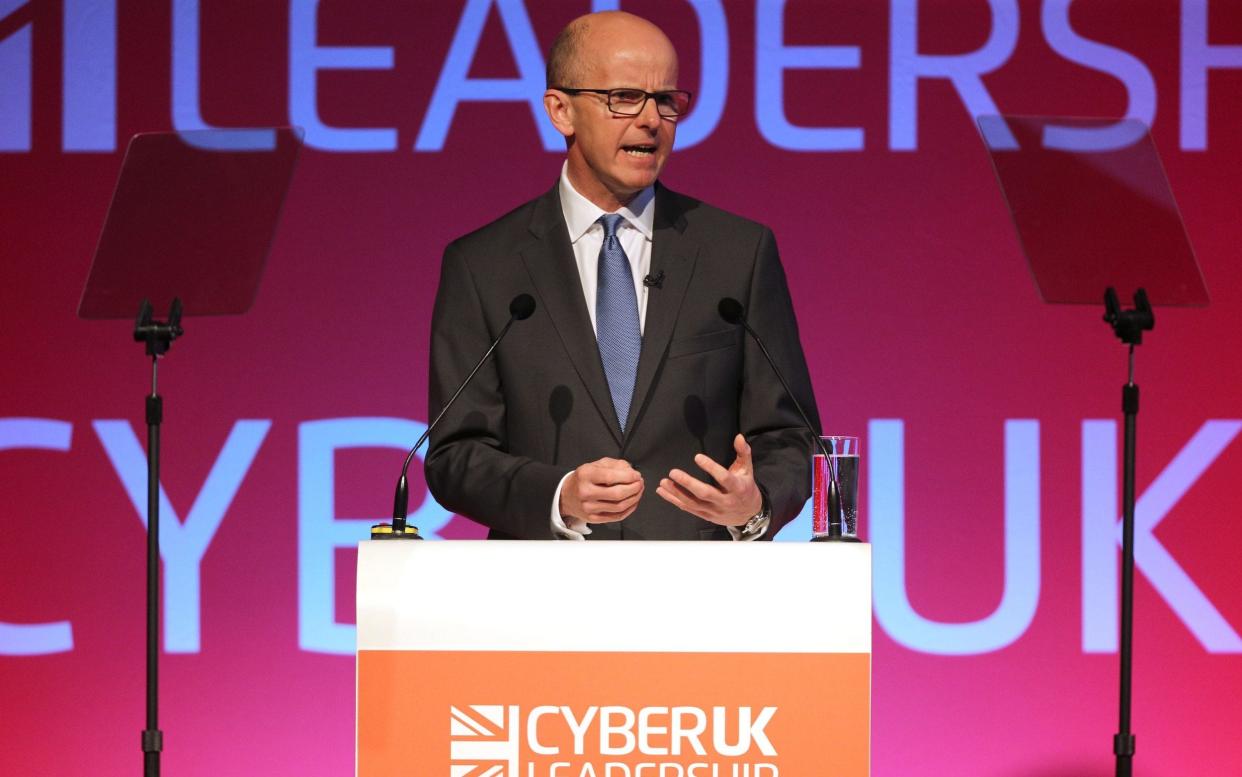GCHQ chief rebukes Barnier with EU terror plots reminder

The director of GCHQ has revealed that Britain’s surveillance agency thwarted four terrorist attacks in European countries in the last year, after Michel Barnier insisted that the UK must lose access to the bloc’s counter-terror intelligence databases after Brexit.
Jeremy Fleming’s comments were made on a visit to Nato headquarters in Brussels and will be interpreted as a veiled rebuke to Mr Barnier, who is the European Union’s chief Brexit negotiator.
Mr Fleming’s rare intervention stressed that EU countries, many of whom are Nato members, could benefit from Britain’s classified intelligence and its ability to counter cyber attacks from countries such as Russia with measures of its own.
He said, “We've played a critical role in the disruption of terrorist operations in at least four European countries.
“Those relationships, and our ability to work together, save lives. That will continue after Brexit, for the benefit of the UK and for Europe.”
Hours earlier in Vienna, Mr Barnier told Britain to get realistic about the consequences of Brexit for UK-EU cooperation on crime and counter-terrorism in extradition and intelligence sharing.
“We need more realism on what is and what is not possible,” the EU’s chief Brexit negotiator said on Tuesday before warning that Britain would lose access to the bloc’s pooled criminal intelligence databases.
Instead of automatic access, new procedures for “effective” information exchange would have to be agreed similar to those for non-EU countries because there was no guarantee that Britain would uphold EU data protection rules after Brexit, he said.

Britain wants to sign a bespoke data protection treaty with the EU, which would, to an extent, replicate the pre-Brexit status quo and argues it would be the foundation on which the future UK-EU relationship could be negotiated.
Brussels on Monday suggested a “guillotine clause” that would cancel any future UK-EU security partnership if the European Commission or European Court of Justice ruled that British data protection standards had fallen too low.
Mr Barnier rebuked Britain for claims that the EU would put people at risk if it stuck to its guns over the future security relationship.
“They seek to blame us for the consequences of their choice,” he said, “We will not be drawn into this blame game.”
He added: “It is clear that we will need to cooperate strongly with the UK in these areas. But, we will need to cooperate on a different basis. That is a challenge in itself.”
Next week, EU leaders meet in Brussels to evaluate the progress made in the Brexit talks.
The European Council will express concern that no "substantial progress" has been made in solving the Irish border issue and warn the UK faces a no deal Brexit unless divisions over the backstop clause can be overcome, according to leaked draft conclusions for the summit.
On Tuesday evening, Britain and the EU published a joint communication outlined where progress had been made on outstanding Brexit issues.


 Yahoo News
Yahoo News 
